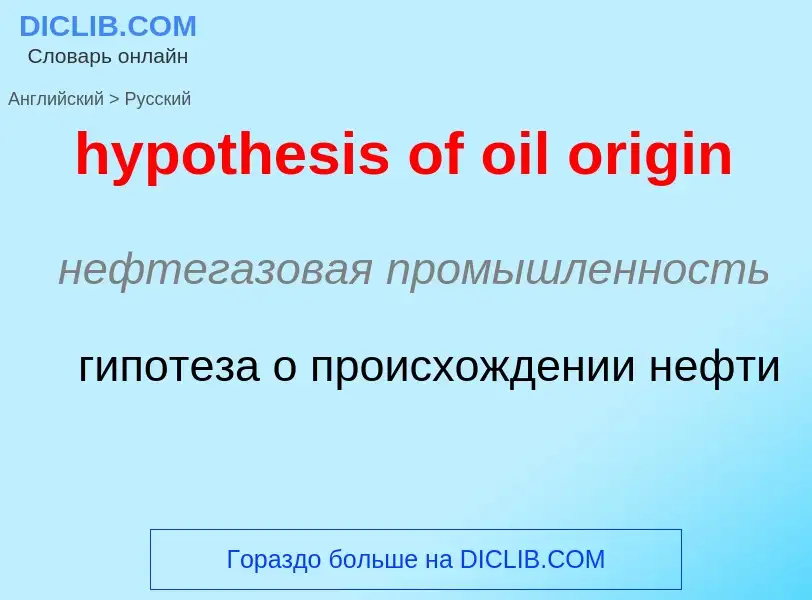Übersetzung und Analyse von Wörtern durch künstliche Intelligenz ChatGPT
Auf dieser Seite erhalten Sie eine detaillierte Analyse eines Wortes oder einer Phrase mithilfe der besten heute verfügbaren Technologie der künstlichen Intelligenz:
- wie das Wort verwendet wird
- Häufigkeit der Nutzung
- es wird häufiger in mündlicher oder schriftlicher Rede verwendet
- Wortübersetzungsoptionen
- Anwendungsbeispiele (mehrere Phrasen mit Übersetzung)
- Etymologie
hypothesis of oil origin - Übersetzung nach russisch
нефтегазовая промышленность
гипотеза о происхождении нефти
общая лексика
центр происхождения
центр возникновения
общая лексика
репликатор
начало репликации
Wikipedia
The Frigg and Freyja common origin hypothesis holds that the Old Norse goddesses Frigg and Freyja descend from a common Proto-Germanic figure, as suggested by the numerous similarities found between the two deities. Scholar Stephan Grundy comments that "the problem of whether Frigg or Freyja may have been a single goddess originally is a difficult one, made more so by the scantiness of pre-Viking Age references to Germanic goddesses, and the diverse quality of the sources. The best that can be done is to survey the arguments for and against their identity, and to see how well each can be supported."
The names Freyja and Vanir (the group of gods to which Freyja belongs) are not attested outside of Scandinavia, as opposed to the name of the goddess Frigg, who is mentioned as Frīg in Old English and as Frīja in Old High German, all stemming from Proto-Germanic *Frijjō. Although there is no similar evidence for the existence of a common Germanic goddess from which Freyja descends, some scholars have argued that this may simply be due to the scarcity of records outside of the North Germanic tradition.



![Genome of ''[[human herpesvirus-6]]'', a member of the [[Herpesviridae]] family. The origin of replication is labeled as "OOR." Genome of ''[[human herpesvirus-6]]'', a member of the [[Herpesviridae]] family. The origin of replication is labeled as "OOR."](https://commons.wikimedia.org/wiki/Special:FilePath/Hhv6 genome2.png?width=200)
